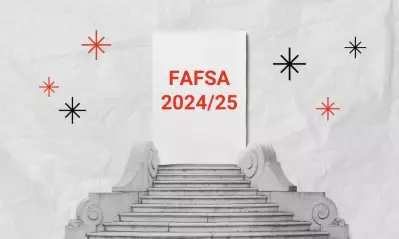How to earn college credit for your life and work experiences

Written by Michael Feder

Reviewed by Jessica Roper, MBA,¬Ýdirector of Career Services at ∆þ…´ ”∆µ

When it comes to paying for your education, it’s important to save anywhere you can. That doesn’t necessarily mean, however, that you’ll have to figure out a way to earn more money while going to school or even that you’ll have to pinch every penny.
Reducing the cost of your education can provide you with the flexibility to pursue your education while living within your means. Of course, earning scholarships can be very helpful toward this goal (read more about how to write an effective scholarship essay on our blog), but they’re not the only way to reduce the cost of your education.
How? you ask. Think of it this way: What if, instead of seeking to reduce the cost of college, you could start college with some of your credits under your belt. You not only would pay less in tuition, but you’d also spend less time in school.
One of the best ways to do this is to apply your work and life experience to earn credits toward your degree. In this article, we’ll cover how you can do just that!
Prior education and work experience
Leveraging your education and work experience can be a straightforward way to earn college credit. A number of schools accept this type of experience, as it can be demonstrated and verified through objective, credible sources, like prior employers and certification assessments.
There are two main ways to earn credits this way: a prior learning assessment and taking exams.¬Ý
Prior learning assessment
A prior learning assessment (PLA) for a college or university generally takes into account both your educational and work experience. Schools generally expect some or all of the following as part of a PLA:
- Education history
- Certifications
- Training history
- Licensure
These can help a college or university develop a more complete picture of what kind of student you are. In fact, a PLA can set you up for an easier and speedier college experience. According to a , students who use PLA credits graduate at higher rates than those who don‚Äôt use PLA, particularly at two-year institutions.¬Ý¬Ý
College credit for life experience
Many colleges and universities take life experience and experiential learning into account when awarding students with college credits. This learning might come from paid work, a personal passion or even volunteering.
Though methods vary from school to school, ∆þ…´ ”∆µ (UOPX) makes this assessment of life experience through one of two ways: The life-experience journal and submitting a portfolio of documented training, licenses and third-party certifications, which doesn‚Äôt require the life-experience journal.
Portfolio assessment: How does it work?
A portfolio assessment is ideal for students who have completed a structured learning program and have a specific credential or documents that attest to that earned experience and knowledge.
For example, industry licenses (e.g., a real estate or a CPA license) or formal training with an employer may lead to the necessary credentials for college credit. Another pathway might be sitting for an industry exam offered by Amazon Web Services™, Google™ or CISCO®.
Students need to provide proof of completion, along with some supporting documentation, to potentially earn credit.¬Ý
First-person journal: How does it work?
To achieve credit for life experience at UOPX, you’ll write a first-person journal chronicling what your life experience has taught you about a specific topic. This topic will relate to a general education requirement for your degree.
You can find more information about this method of receiving credit for life experience by following this link.
Experiential journals can cover a wide range of topics, and the journals should drill down to a number of subtopics as well. For example, a person with American Sign Language (ASL) experience could write about similarities and differences between ASL and the English language, as well as other related topics. Along with two letters of reference that confirm the student has mastered the knowledge and skills required by a course, the satisfactory completion of this journal could result in three lower-level credits toward a communication arts requirement, which a student would otherwise earn by completing a class. (It‚Äôs also important to note that different topics have different documentation requirements.)¬Ý
What kinds of topics can I write about?
UOPX assesses seven general educational categories, which are:
1.¬Ý¬Ý¬Ý¬Ý¬Ý Communication arts
2.¬Ý¬Ý¬Ý¬Ý¬Ý Humanities
3.¬Ý¬Ý¬Ý¬Ý¬Ý Physical/biological science
4.¬Ý¬Ý¬Ý¬Ý¬Ý Physical education
5.¬Ý¬Ý¬Ý¬Ý¬Ý Science/technology
6.¬Ý¬Ý¬Ý¬Ý¬Ý Social science
7.¬Ý¬Ý¬Ý¬Ý¬Ý An interdisciplinary category
These categories break down to hundreds of approved topics, so chances are you‚Äôll find topics you‚Äôre familiar with.¬Ý
Examinations
Besides a prior learning assessment, many colleges and universities accept certain exams as a pathway toward credit. Generally, the number of credits earned this way are more limited as compared to what can be earned with a prior learning assessment, but exams can still be effective for reducing the cost and time to earn a degree.
Why go through an examination process instead of a prior learning assessment? Well, many students may not have the on-paper prerequisites, such as third-party certifications and licensure, required for a prior learning assessment.
An examination, on the other hand, strictly tests your knowledge on a certain subject. You’ll be assessed on your ability to pass or not pass the exam, opening the opportunity to earn credits without specific qualifications.
If you’re looking to get college credit this way, you will most commonly see exams offered through CLEP, or the . More than 30 examination options are available to students through CLEP, such as:
- American government
- Human growth and development
- Psychology
- Literary analysis
- Spanish
- Chemistry
While the number of credits you can earn this way is generally limited, exams are a great option for anyone with the know-how to pass. When researching your college or university, make sure to explore which exam credits it accepts, and how many credits you can achieve through this method.¬Ý
Want to find out more about alternative ways to earn college credits? We’ve got you covered in our blog!

ABOUT THE AUTHOR
A graduate of Johns Hopkins University and its Writing Seminars program and winner of the Stephen A. Dixon Literary Prize, Michael Feder brings an eye for detail and a passion for research to every article he writes. His academic and professional background includes experience in marketing, content development, script writing and SEO. Today, he works as a multimedia specialist at ∆þ…´ ”∆µ where he covers a variety of topics ranging from healthcare to IT.
This article has been vetted by ∆þ…´ ”∆µ's editorial advisory committee.¬Ý
Read more about our editorial process.
Read more articles like this:


